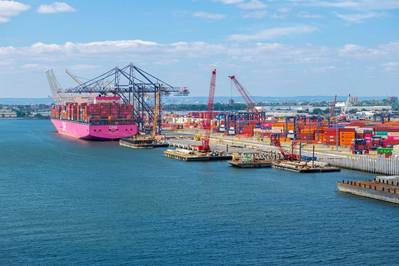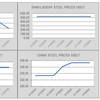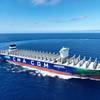Amazon, IKEA Push for Green Fuels
Amazon.com and IKEA, in alliance with about three dozen other companies that depend on ocean freight, will invite shipping firms for the first time to bid on a contract in January to move their cargo on vessels powered by near-zero emissions e-fuels like e-methanol.
The group known as the Zero Emissions Maritime Buyers Alliance wants to use the combined clout of its members, who have their own climate goals to meet, to create demand for e-fuels made with renewable electricity and carbon dioxide. Those fuels are in very short supply.
The alliance wants to accelerate the ocean shipping industry's move toward net-zero greenhouse gas emissions by 2050, even as U.S. President-elect Donald Trump is expected to pull out of international commitments to combat global warming.
The world's fleet moves more than 80% of global trade and contributes about 3% of the world's GHG emissions. E-fuels are vital to fully decarbonizing ocean shipping because they have long-term potential to compete against fossil fuels on cost and supply, the alliance said.
"This is how you get on path and on track to being net-zero," said alliance member Carl Berger, who leads sustainability and export operations for Amazon Global Logistics.
The group's three- to five-year contracts for e-fuel transport are expected to begin in 2027.
The cargo moved under the contract is estimated to be equivalent to at least 1.4 million 20-foot (6.1-meter) containers transported from Shanghai to Los Angeles. That would enable members to abate some 470,000 metric tons of GHG emissions that warm the planet and harm human health, according to the group, which is administered by the Aspen Institute, a U.S.-based think tank.
Carriers such as Maersk, Evergreen and Ocean Network Express have ordered ships that can operate on e-methanol and are working to secure supplies of that fuel.
While alliance members hope their collective action will lower the cost of e-fuels, they expect to pay an undisclosed premium to help offset the higher cost versus fossil fuel.
"Once that market gets going, we'll start to see those costs come down," alliance CEO Ingrid Irigoyen said of e-fuel.
The effort could get a boost from global regulations aimed at bringing more certainty to companies that are making the transition to greener fuels.
The International Maritime Organization's Marine Environment Protection Committee in April is scheduled to set a global regulatory structure for reducing GHG emissions in the maritime industry.
That would include regulating the phased reduction of marine fuel GHG intensity and introducing a GHG pricing mechanism that, among other things, gives incentives for zero-emissions fuel use and charges a fee for each metric ton of carbon dioxide emitted.
(Reuters - Reporting by Lisa Baertlein in Los Angeles; Editing by Richard Chang and Jonathan Oatis)







